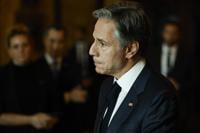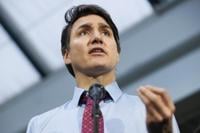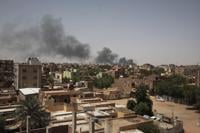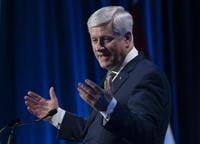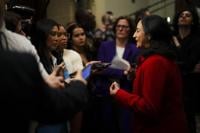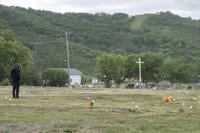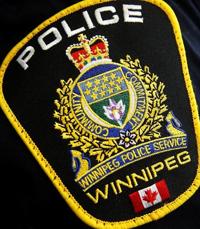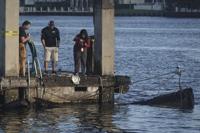WASHINGTON - The U.S. secretary of state urged India again Friday to work with Canada on its investigation into the killing of Hardeep Singh Najjar ã a simple ask Prime Minister Justin Trudeau says he has also been making "from the very beginning."
Antony Blinken wrapped up a whirlwind nine-day, eight-city overseas trip with a final stop in New Delhi, where he sat down with senior Indian government officials, including Prime Minister Narendra Modi.
He said he has raised the issue of Nijjar ã a prominent Sikh activist who was gunned down in June outside a gurdwara in Surrey, B.C. ã with his Indian counterparts on multiple occasions, including on Friday.
"These are two of our closest friends and partners, and of course we want to see them resolving any differences or disputes that they have as a friend of both," Blinken told a news conference.
"We think it's very important that India work with Canada on its investigation, and that they find a way to resolve this difference in a co-operative way. But that really does go with Canada moving its investigation forward and India working with Canada on it."
Blinken's meeting with External Affairs Minister Subrahmanyam Jaishankar came as part of what's known as the U.S.-India "2+2" ministerial, which included Defense Secretary Lloyd Austin and his Indian counterpart, Rajnath Singh.
Trudeau stunned the House of Commons back in September when he cited "credible allegations" linking Nijjar's killing to agents of the Indian government. Some reports have pointed to Canada's partners in the Five Eyes security alliance as the source of the intelligence.
Nijjar, 45, was at the wheel of his pickup truck when he was gunned down June 18 by a pair of masked gunmen in the parking lot of the gurdwara shortly after evening prayers. At the time, police in B.C. described it as a targeted killing.
Trudeau's allegations pose a vexing diplomatic challenge for the U.S., which has been cultivating closer economic ties with India as part of an effort to build a geopolitical bulwark in the Indo-Pacific against China's growing influence.
A joint statement released by the State Department described Friday's meeting as having made "substantial progress in transforming U.S.-India relations ãÎ based on trust and mutual understanding."
Canada's relationship with India, however, is now on a very different footing.
"From the very beginning ãÎ we reached out to India to ask them to work with us in getting to the bottom of this matter," Trudeau said Friday during a media event in Sault Ste. Marie, Ont.
"We also reached out to our friends and allies, like the United States and others, to work on this really serious violation of international law and of sovereignty of a democracy."
India's high commission in Canada resumed processing some types of visa applications in late October after suspending the services for Canadian citizens around the world for more than a month, citing security concerns.
India also threatened last month to strip Canadian emissaries and their family members of their diplomatic immunity, an escalation that prompted Global Affairs to direct 41 of its diplomats and their dependants to leave the country.
On Friday, Trudeau called that a violation of the Vienna Convention, the 1961 UN agreement that provides diplomatic officers with certain rights and protections in order to safely operate in another country.
"That is of concern to countries around the world," he said. "If a given country can just decide that the diplomats of another country are no longer protected, that makes international relations more dangerous and more serious."
The stakes in the dispute are high, and not only for Canada, Trudeau added.
"If might starts to make right again, if bigger countries can violate international law without consequences, then the whole world gets more dangerous for everyone."
This report by üСÜꪤüýò¿Øéóæòêü was first published Nov. 10, 2023.


